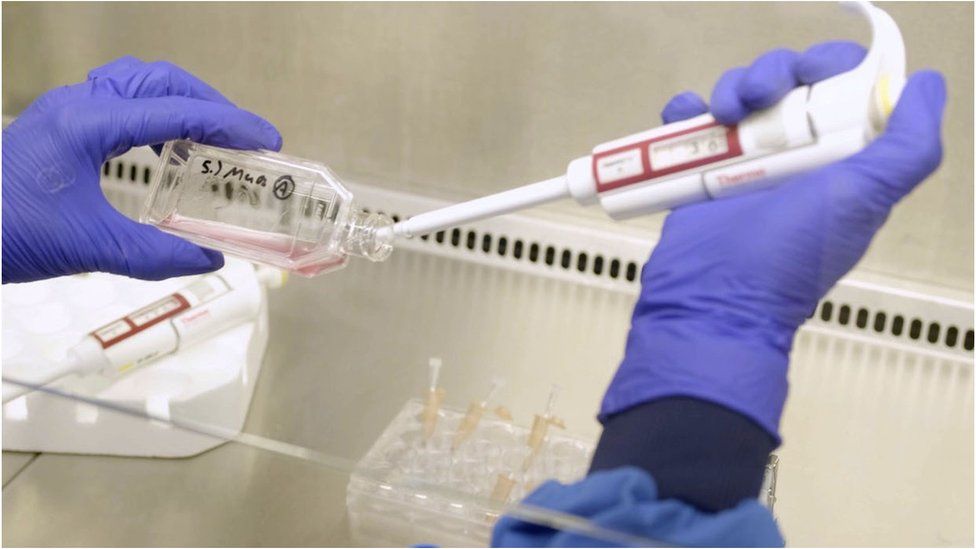Advances in Blood Transfusion of Rare Blood Types
"We hope our lab grown red blood cells will last longer than those that come from blood donors.""If our trial, the first such in the world, is successful, it will mean that patients who currently require regular long-term blood transfusions will need fewer transfusions in future, helping transform their care."Professor Cedric Ghevaert, chief investigator, University of Cambridge"We want to make as much blood as possible in the future, so the vision in my head is a room full of machines producing it continually from a normal blood donation.""[Some groups were] really, really rare [and there] might only be ten people in the country [able to donate]."Professor Ashley Toye, , University of Bristol"The need for normal blood donations to provide the vast majority of blood will remain. But the potential for this work to benefit hard to transfuse patients is very significant.""This world-leading research lays the groundwork for the manufacture of red blood cells that can safely be used to transfuse people with disorders like sickle cell.""The potential for this work to benefit hard-to-transfuse patients is very significant."Dr. Farrukh Shah, medical director, Transfusion for NHS Blood and Transplant
 |
Blood grown in a laboratory has been transfused into humans for the first time in a landmark clinical trial. Future Publishing | Getty Images |
In a world-first clinical trial that researchers feel confident may revolutionize treatments for people with rare blood types, blood grown in a laboratory was transfused into humans. Two British patients received small amounts of the lab-manufactured blood, equivalent to a few spoonfuls, an experiment meant to study how the blood performs in the human body.
The purpose of the trial, to compare the lifespan of laboratory-produced cells to infusions of standard red blood cells from the same donor. Research teams in Bristol, Cambridge, London and at NHS (National Health Service) Blood and Transplant set their focus on the red blood cells carrying oxygen from the lungs to the rest of the body.
A donation of a pint of blood from an adult initiated the trial with magnetic heads used to extract flexible stem cells capable of becoming red blood cells, where the stem cells are placed in a nutrient solution for about 18 to 21 days. The cells are stimulated to multiply, developing into mature cells, then guided to result in red blood cells.
Some 50 billion red blood cells result from a pool of approximately 500,000 stem cells; those 50 billion red blood cells after filtration see the pool reduced to 15 billion cells reaching the correct stage of transplant development. Tagged with a radioactive substance, the lab-grown blood is typically used in medical procedures enabling the monitoring of its longevity in the body. The trial is in its initial phases.
Lab-grown blood cells manufactured in the laboratory is anticipated to become beneficial mostly for those patients suffering from blood conditions such as sickle cell anemia. The human body typically rejects any treatment if the blood is not a precise match, creating difficulties for patients with a rare blood type. Tissue-matching transcends the well-known A, B, AB and 0 blood groups.

Labels: Blood Cells, Blood Transfusion, Britain, Laboratory Grown Blood Cells, Research

0 Comments:
Post a Comment
<< Home